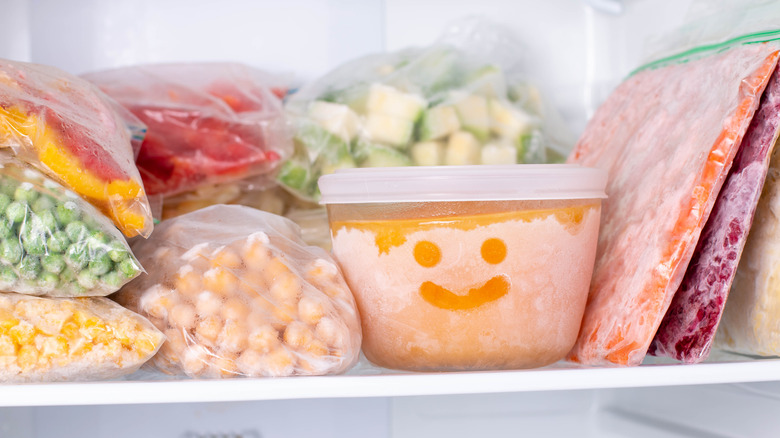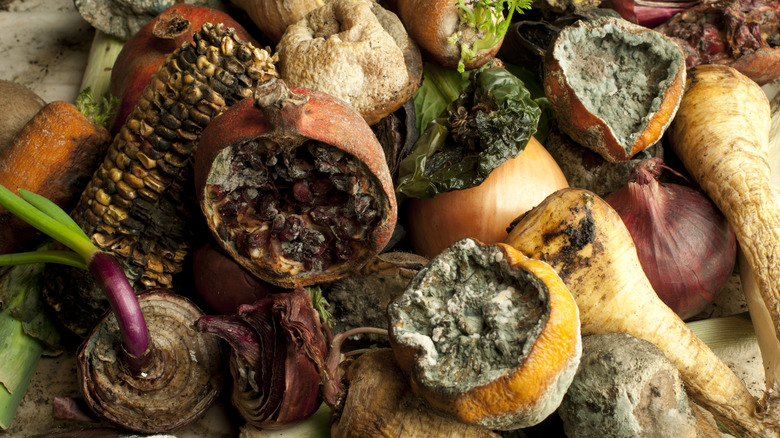Freezing Your Food Doesn't Exactly Eliminate Bacteria, But It Does Help
Getting through all of your groceries before they spoil can be a challenge. Bread, for one, turns green in what feels like the blink of an eye. You have to power through your leafy greens in what feels like only seconds before they go bad, and eat your homemade jam for breakfast every morning to avoid mold formation. When food isn't stored properly or enjoyed before its expiry date, microorganisms like bacteria, mold, or yeast multiply and produce waste that can taint your food, making it inedible (via the U.S. Department of Agriculture).
Eating spoiled food can result in food poisoning leading to a host of unpleasant symptoms, including nausea, vomiting, and diarrhea, Healthline explains. And let's be real; most people will do anything and everything in their power to avoid a case of food poisoning. Medical News Today states that one of the most common ways to preserve the freshness of your food is by freezing it, especially when it comes to meats that typically expire within days of purchase.
But you might be surprised to find out that freezing your food, whether it's meat, fruit, bread, or anything else, doesn't entirely eradicate dangerous bacteria.
Freezing food halts bacterial production and growth
Just because freezing food doesn't entirely eliminate bacterial growth, it's still important to freeze perishable foods for preservation and long-term safety purposes. When you freeze food, the U.S. Department of Agriculture claims that you're not actually killing and removing the microorganisms that lead to food poisoning; you're actually just freezing them, rendering them inactive. Once you begin the thawing process, the microorganisms wake up and become active again — Captain America, is that you?
When it comes to meat, MasterClass states the faster you freeze it, the better. Not only does it freeze those creepy microorganisms, but quickly freezing your meat will help prevent ice crystals. As a good rule of thumb, you should always keep your freezer at zero degrees Fahrenheit to guarantee the freshness and safety of all of your frozen foods, not just the ones that spoil fast.
So while the bacteria are still present in frozen foods, they're effectively harmless as long as they're frozen. Happy eating!

